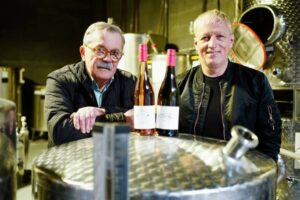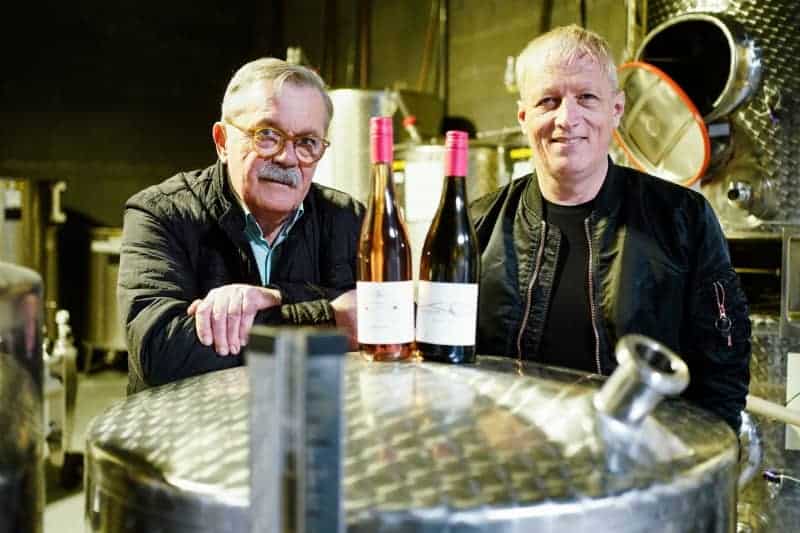
DPA

The world of wine has moved beyond binary thinking – just think about all those shades of rosé out there.
But viticulturists in the German state of Rhineland-Palatinate have also called on all the non-binary people in the industry and all lesbian, gay, bisexual, transgender and intersex vintners to each send in two wines, for a selection of two “Queer Wines.”
Those joining the campaign include Robert Boudier and his husband Elmar Koeller of Stetten in the Donnersberg district, where vineyards reach as far as the eye can see. It’s the place where two regions meet: the Palatinate and Rheinhessen and locals embrace the diverse traditions.
Elmar Koeller and his husband both have different professional backgrounds but they bought a historic winery 11 years ago.
Koeller points out that they are not bound to tradition and don’t rely on the winery directly for their survival.
When they first moved to the small village, it took a little while for people to get used to them, says Koeller. “I didn’t come into the world as a missionary – but I do go by the principle that I’ll show people who and what I am.”
The couple are now hoisting the rainbow flag in the village to show their support for diverse ways of living and their desire for peace.
They also like to show off their winery’s pink tractor, which has become their personal trademark, says Koeller. He says he perfectly fits gay male stereotypes as he doesn’t even drive the tractor, and laughs.
The couple submitted a wine named Rosa Traktor, which translates as “Pink Tractor,” in response for the call for wines to be considered for the state Family Ministry’s selection. It’s a rosé, a cuvée of Pinot Noir and Pinot Meunier. The other wine they put forward for consideration is a Sauvignon Blanc.
Not everyone embraced the QueerWein initiative right away. Referring to the catastrophic floods that hit the region last summer causing deadly destruction, former federal agricultural minister Julia Klöckner seemed to pour cold water on the campaign.
“Our vintners in the Ahr region have wholly different concerns,” conservative Klöckner told dpa. After all, in the Ahr region, people’s cellars were completely washed away by the floods, whole harvests lost.
While the queer scene has legitimate concerns, she says, the QueerWein campaign was not addressing the most pressing issues right now.
State representatives beg to differ.
The campaign can raise awareness of the diversity of the region’s vintners, says David Profit, a lawmaker who represents the concerns of lesbians, gays, bisexuals, trans, intersex and queer people. “Today, diverse lifestyles are of course also part of the wine world, but currently they are not very visible,” says Profit.
“The new QueerWein Rhineland-Palatinate campaign can make this diversity more visible in the state.”
Profit wants to select two wines from all those submitted and host a tasting with wine experts, and then present the Queer Wines to the public.
The family ministry is planning to purchase them and offer them on special occasions, as well as sending them around the nation.
A further lawmaker has joined the campaign from the state viticulture ministry.
“With the diversity of its grape varieties and flavours, wine also shapes the country’s culture and attitude to life,” says state secretary Andy Becht.
Wine contributes to the country’s special welcoming culture and hospitality, he adds. “Values such as respect, freedom, acceptance and good and understanding togetherness need to be emphasized all the more again these days – and absolutely through unconventional approaches.”


Recommended Comments
There are no comments to display.